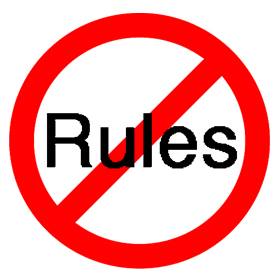This is ridiculous.
Sugar Land Mayor Joe Zimmerman’s dual roles as a member of the Houston region’s transportation planning board and consultant at an engineering company will not receive further scrutiny by the local board after staff concluded the panel cannot police its own ethics policies.
A three-month examination of questions raised by opponents of the massive Interstate 45 rebuild in Houston concluded Friday with only minor changes for the Transportation Policy Council, a subcommittee of the Houston-Galveston Area Council. The opponents had accused Zimmerman of having a conflict of interest in supporting the project while his employer, Halff Associates, is under contract with the Texas Department of Transportation for work on the project.
Asked to analyze the accusations, staff and H-GAC lawyers concluded that while they had rules, they do not have mechanisms to enforce them.
“Neither the TPC, nor the staff, have authority to investigate ethics complaint,” said Craig Raborn, transportation program manager for H-GAC.
Because the local board cannot investigate the conflict of interest complaint, it also cannot say whether one occurred, Raborn said. In its report, the agency said no further action on the matter was needed, and recommended only minor changes in policy so officials are of aware of and can report conflicts of interest.
[…]
Members of the transportation council, as is common on many boards across Texas, are expected to police themselves and report conflicts so they can abstain from voting. The TPC ethics policy is mostly verbatim the state’s ethics guidelines, which make violations either a criminal or civil complaint.
While the policy has ethics rules about conflicts of interest, they are rarely, if ever, applied. In the past decade, no disclosure form has been filed by a member of the transportation policy council based on prior open records requests and the recent analysis. Conflict of interest disclosures have been filed by H-GAC board members, however, including Zimmerman in that capacity.
The analysis has led to changes internally, meanwhile, for the policy council. Meetings now include a reminder at the beginning for members to submit declarations of any conflicts of interest.
Three separate parts of state codes outline conflict of interest, as it could be applied for transportation council members. State law requires an elected official to declare a conflict if they have a “substantial interest” in a business, defined as owning 10 percent of the company’s stock or deriving 10 percent or more of one’s gross income from the company. Another portion of the law requires any member of a board to abstain from voting on an item that includes something in which they have a business relationship.
Texas Transportation Code, meanwhile, sets out specific ethics rules for metropolitan planning organizations. In that section, it says board members may not “accept other employment or compensation that could reasonably be expected to impair the member’s or employee’s independence of judgment in the performance of the member’s or employee’s official duties.”
The provision, however, only allows for someone to file a complaint with the district attorney’s office, which can — if it thinks the allegation has merit — ask for assistance from the Texas Ethics Commission.
I make no judgment about the merits of the accusations here – I’d not heard of this before now, and I don’t know enough to say anything substantive. You can read the rest of the story and draw your own conclusions. What I will say is that as much as I’d like to crap on H-GAC, the real problem here is the Legislature and its longstanding allergy to ethics and ethics enforcement. On the list of priorities the Lege should have, I can’t say this is up there. It still boggles the mind that there isn’t even a mechanism to force a clearly unethical member of a body like H-GAC to resign. Yes, a criminal complaint can be filed – that would be the case regardless of what the statutes relating to these rules say – but there’s a significant gap between what’s illegal and what’s merely unethical. What we’re left with is an unsatisfactory mess for all involved. We deserve better.

